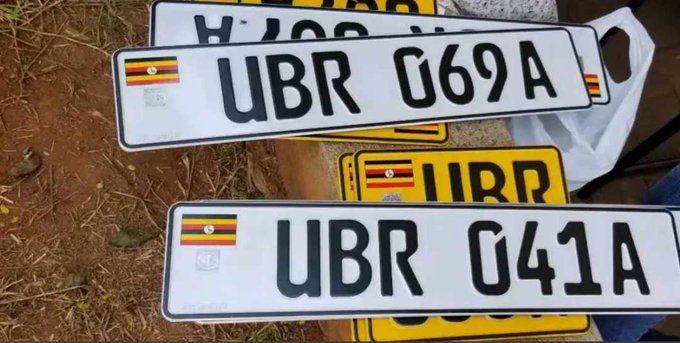The halt in number plate production by local manufacturers has severely impacted car dealers, who are now struggling to continue their business.
With a daily importation rate of at least 200 vehicles, this disruption has left many dealers unable to sell their inventory.
This website has since discovered that the only number plate manufacturers in Uganda — GM Tumpeco and Arnold Brooklyn and Company (ABC) Limited — have stopped accepting orders from car importers.
The manufacturers are wary of potential losses, as the Government could cancel their short-term contracts at any moment due to the upcoming introduction of digital number plates.
Car dealers are increasingly concerned as hundreds of vehicles and motorcycles remain unsold in bonds. Charles Kamunvi, chairperson of the Associated Motor Dealers (AMD), reported that it has been a week since manufacturers ceased taking orders for new plates.
Speaking at a press briefing held at the Uganda Manufacturers Association headquarters in Lugogo, Kampala, Kamunvi highlighted that recently imported vehicles are now stuck in bonds, unable to be sold.
This situation, according to Kamunvi, could significantly reduce the tax revenues collected by the Uganda Revenue Authority (URA) from car dealers and number plate processing.
He noted that daily tax collections have dropped from sh3 billion to sh1.5 billion, posing a challenge to efficient tax collection and necessitating immediate corrective measures.
Kamunvi also revealed that car dealers import around 1,400 vehicles each week.
As of June 30th this year, Uganda had registered 2.2 million motor vehicles, all of which are slated to receive digital number plates under the government’s new plan.
Starting November 1st, the Government will begin rolling out digital number plates, initially for new motorcycles, according to the security minister, Maj. Gen. (rtd) Jim Muhwezi.
The full roll-out to all vehicles and motorcycles is set to commence on January 6th of next year. Muhwezi mentioned that a production line with hot stamping and embossment machines has already been set up in Kampala.
The Government aims to phase out all old number plates within two years as part of the Intelligent Transport Monitoring System (ITMS) project.
Due to the impending transition to digital plates, number plate manufacturers have only been receiving short-term contracts.
Michael Mwine, operations manager of Superior Motors Limited, expressed concern that dealers are struggling to sell cars from bonds, as they cannot be fully registered without number plates.
“Cars brought on order cannot be delivered within the expected time frame because they cannot leave the bond without number plates, and a logbook cannot be generated without them,” he explained.
Elvis Wavamuno, executive director of GM Tumpeco, explained that two years ago, the Government cancelled their contract and awarded it to Russian digital number plate producers.
However, the launch of digital plates has been postponed four times because the Russians were not ready.
“Whenever these dates were postponed, we stepped in with short-term contracts to fill the gap,” Wavamuno said.
The current short contract is set to expire in October, with only about 28 days remaining.
Meanwhile, Susan Kataike, spokesperson for the Works and Transport Ministry, assured car dealers in a recent meeting that the suppliers would have number plates available by the end of the day.
However, URA assistant commissioner for public and corporate affairs, Robert Kalumba, declined to comment on the matter at the time.
Number plate manufacturers remain concerned that their contracts may be abruptly cancelled with the introduction of digital number plates.


1 Comment
Pingback: Over 90,000 Car Number Plates Imported To Curb Scarcity - The Insider